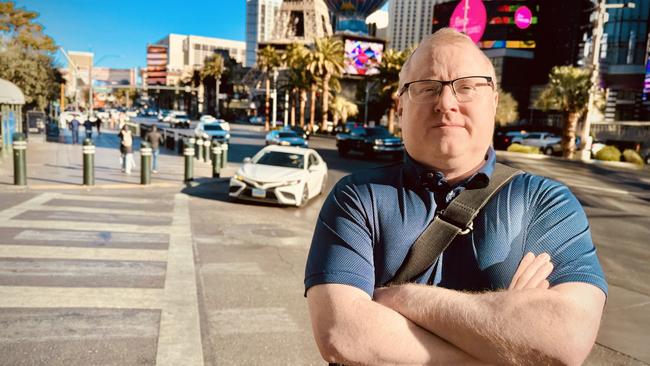AI will ‘degrade’ unless tech giants to pay content creators: Getty Images warns
If AI is left to feed on itself it will degrade, making it crucial photographers, writers and other creators are paid fairly to train it, warns Getty Images.

Getty Images — one of the world’s biggest visual media companies — has warned tech companies against muscling photographers, writers and other artists out of business, saying if AI is left to feed on itself, the much-hyped technology will degrade.
The rapid adoption of AI platforms has sparked a flurry of lawsuits, leaving courts to decide one of the biggest economical questions over the technology: copyright.
Artists, musicians and publishers say the tech giants must compensate creators for using their work to train AI engines. But tech companies have a different view, with Meta’s chief AI scientist Yann LeCun arguing most books should be free to download, given few authors make “significant money” from book sales.
A Microsoft director also said writers could make more money mowing lawns.
But Getty Images chief product officer Grant Farhall said artists had the right to be compensated fairly, regardless of how much money made, and it was in the tech behemoths’ interests to do so.
“There are artists and people that create IP, that do make a living at it. And there’s a lot of them. We work with hundreds of 1000s of creators that make a living by being amazing photographers, videographers and illustrators,” Mr Farhall told The Australian in Las Vegas.
“It’s in the best interest of broader society to sustain that creative ecosystem. If artists can’t make a living doing their work, they will stop making their work.
“That would be bad for all of us because these AI tools depend on that content to train itself. If AI tools only are able to train themselves on tools or visuals created by AI, I think over time, they’re going to degrade.”
It’s a similar view to Robert Thomson, global chief executive of News Corp — owner of this masthead — who says the technology must not be allowed to become “degenerative AI”.
Mr Farhall said given artificial intelligence relied on existing content to produce its photorealistic imagery and other material, it was essentially a “look back”.
“It’s trained on visuals that were captured in the past. And pre-shot or camera shot is always going to be a more timely depiction of what’s happening in the world.
“So, you know, when the pandemic hit, what everything looked like changed in a moment — what business looked like, what education looked like, what socialisation looked like. An AI visual generator would not have had the ability to, in that moment, provide a timely up to date visual depiction of those concepts.”
Getty Images is suing Stability AI in Delaware, alleging it infringed on Getty’s copyrights. Mr Farhall declined to comment on the case but said Getty was open to working with any company who was willing to pay a fair price for content and use AI responsibly.
The company deepened its partnership with Nvidia this week to create AI-generated stock photos via Getty’s subsidiary iStock. The platform allows users to produce a range of realistic imagery via simple written prompts.
“We’ve proven that you can develop AI capabilities responsibly by being transparent about your data sets, and sourcing it from permissions data,” Mr Farhall said.
“Responsible means that the creators who are providing the visuals in those training sets are compensated. Our belief there is that should be on a recurring basis. As we make more money from this new product, they (content creators) make more money from this new product. So we’re always seeking that win-win.”
None of Getty’s editorial photography is used to generate AI content. The platform is trained entirely from Getty’s creative library and AI disclosures are used in a picture’s metadata.
Mr Farhall said the technology aimed to generate creative images which would otherwise be too expensive or near-impossible to produce logistically.

“Everyone’s trying to figure out where they can use these AI solutions. To create efficiencies, or to source a visual that is out of reach.
“The example I often refer to is if you wanted to write a story about climate change, you could use a visual of the polar bear on the ice flow. It’s a very powerful visual, but it’s been used a lot.
“A fresh image of that would be hundreds of penguins marching down a downtown street. But that would be really hard to shoot — the access to hundreds of penguins, convincing a city to let you use them in their downtown. And penguins don’t follow direction particularly well, either. There are challenges there. But you can create that with a tool, with our tool.”
But such images risk spreading misinformation — a problem Fox Corporation is aiming to solve by partnering with Polygon to launch a verification platform, using blockchain technology.
Mr Farhall said determining what was real and fake had become more difficult, reiterating it is why AI needed to be deployed responsibly.
“We’ve seen some companies who have used an AI image and there’s been a backlash. So companies need to decide where they want to use it, and where not to use it.
“But what’s consistent is consumers want to know if something was generated with AI or not. So I think, again, brands and companies have to figure out how to inform their audiences when they’re using AI generated content in a transparent and clear way.
“Our responsibility is to ensure that it is clear on our end, so whenever someone generates one of our visuals from our AI generator, we embed it into the metadata.”
*The author travelled to Las Vegas as a guest of Hisense.






To join the conversation, please log in. Don't have an account? Register
Join the conversation, you are commenting as Logout